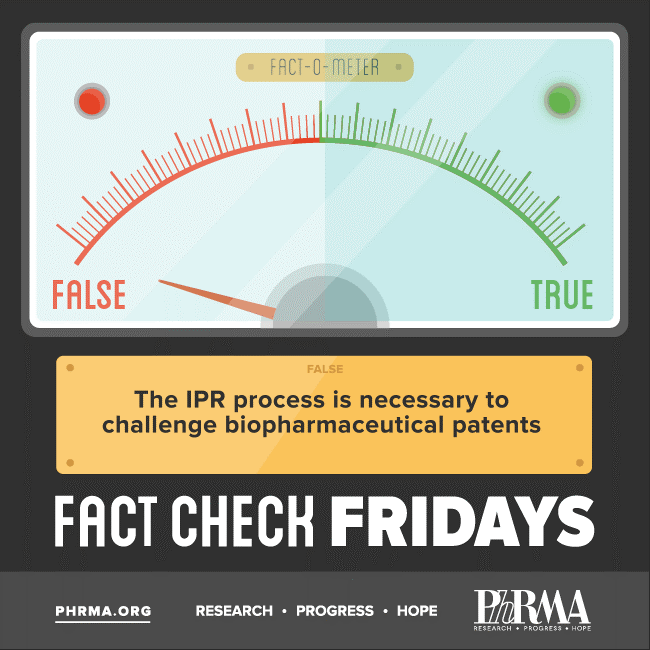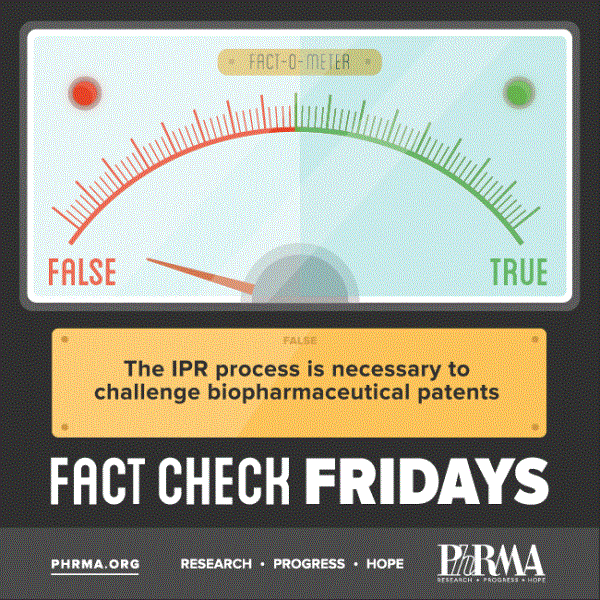Today, we’re pleased to be kicking off our newest Catalyst blog series: Fact Check Friday. We’ll be using this space to separate truth from fiction and set the record straight when the rhetoric strays too far from reality.
First up in our series, patent litigation reform and the inter partes review (IPR) process.
 MYTH:
MYTH:
The IPR process is necessary to challenge biopharmaceutical patents.
FACT:
Congress already created systems to challenge biopharmaceutical patents – and it’s working.
Congress never intended for the IPR process to be the way to challenge biopharmaceutical patents.
Rather, lawmakers already created carefully-crafted patent resolution frameworks under the Hatch-Waxman Act and the Biologics Price Competition and Innovation Act (BPCIA) that promote competition and encourage next-generation innovation. And this system is working. The proof is in the fact that 88% of prescriptions filled in the U.S. are for generics – up from just 19% before the law’s enactment – and the use of generics generated nearly $1.5 trillion in savings to the U.S. health care system from 2004-2013.
IPRs unnecessarily threaten the delicate balance established by the Hatch-Waxman Act and BCPIA and places future innovation at risk.
Congress would do well to preserve those existing procedures so that meaningful patent reform can take hold. This will help safeguard investments in the next generation of treatments and cures for America’s patients.
Read other blog posts on patents.
Interested in patent issues and want to receive alerts, subscribe here. {{cta('579cfd36-897d-4d7c-90cd-6ec935ead1f9')}}



 MYTH:
MYTH: 

